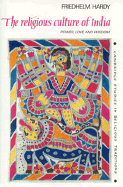Book contents
- Frontmatter
- Contents
- Illustrations
- Preface
- Power: the challenges of the external world
- 1 Consulting the oracle once again
- 2 Oceans of milk and treacle
- 3 Navigating the sea of earthly existence
- 4 Safe havens
- 5 Violence, aggression and heroism
- 6 Manipulating space, time and matter
- 7 Entering forbidden realms
- 8 Unleashing the powers of the self
- Love: the rhythms of the interior world
- Wisdom: commuting within one world
- Notes
- Index
8 - Unleashing the powers of the self
from Power: the challenges of the external world
Published online by Cambridge University Press: 09 February 2010
- Frontmatter
- Contents
- Illustrations
- Preface
- Power: the challenges of the external world
- 1 Consulting the oracle once again
- 2 Oceans of milk and treacle
- 3 Navigating the sea of earthly existence
- 4 Safe havens
- 5 Violence, aggression and heroism
- 6 Manipulating space, time and matter
- 7 Entering forbidden realms
- 8 Unleashing the powers of the self
- Love: the rhythms of the interior world
- Wisdom: commuting within one world
- Notes
- Index
Summary
Imagine a beautiful palace, filled with all possible luxuries and comforts. Somewhere inside, on a soft couch, a prince is reclining. Many beautiful girls are ready to fulfil any desire his fancy might design. High walls protect the idyllic scene against the intrusion of the normal world of man, with its ugliness, suffering and violence. And this pleasurable imprisonment is intended to influence the prince's destiny, for he is endowed with the thirty-two characteristics of a ‘superman’. Aware of the ambivalence this implies about his future, his father the king has tried to push the prince in the direction of becoming a cakravartī a universal ruler, away from its alternative, that of a Jina, a ‘spiritual conqueror and victor’. Since our prince is quite happy inside his golden cage, the Buddhas abiding in other universes are forced to gather together and resort to a means of impelling him into the outside world. As the girls begin to play on their musical instruments, the melodies turn into words, words about the transience of all pleasures and about a mission that awaits the prince beyond the walls of his palace:
‘The objects of desire always contain danger and strife;
they are like the edge of a sword, like a leaf smeared with poison.
They must be avoided, as if they were pots filled with excreta.
The objects of desire are like a blazing pit of fire;
like quicksand or the blade of a razor covered in honey.
The objects of desire last but a moment
and are false like a conjurer's trick.
They are as real as a bubble or foam on water.’
- Type
- Chapter
- Information
- The Religious Culture of IndiaPower, Love and Wisdom, pp. 168 - 190Publisher: Cambridge University PressPrint publication year: 1994

